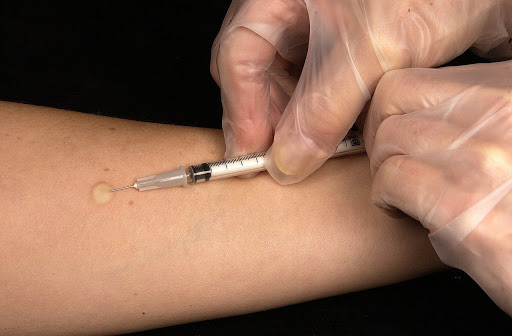People are often reluctant to speak about their sexual health. But in reality, ill health can happen to anyone. It is always best to be informed of sexual illness to be identified and tackled at the right time.
Erectile dysfunction is one of the most common sexual disorders among men. Studies have shown that in Malaysia, 16% of men aged 40 years and above had moderate or complete erectile dysfunction.
The graph below shows the percentage of french men who are suffering from erectile dysfunction.

What is erectile dysfunction (ED)?

ED or erectile dysfunction is the inability in men to gain or retain an erection to engage in penetrative sexual intercourse. Sometimes this is also known as impotence.
The main problem with erectile dysfunction is that if you do not treat it immediately, having fulfilling sexual activity could be nearly impossible.
While occasional ED can occur during the time of stress, if the problem occurs frequently, it could be a sign of a mental or physical health problem that needs to be addressed by a certified medical practitioner.
Symptoms and recognizing signs of erectile dysfunction
The primary symptom of erectile dysfunction is either the complete inability to have an erection or having an erection that’s not firm enough for sex.
For some people, it means that you can maintain only brief erections, or you will lose your erection at any point during sexual intercourse.
Here are some of most of the commonly found symptoms of ED
- Brief erection
- Diminished sexual desires
- Difficulty in retaining an erection throughout sexual intercourse
- Erection is not firm enough for successful sexual intercourse
In the United States, men between the age group of 40 to 70 are mostly found to be affected, and the percentage keeps rising with age.
Causes and risk factors of erectile dysfunction
To achieve a successful erection, the nerves leading to and from the penis need to function properly, along with an adequate amount of blood flowing in and out, as well as sufficient levels of testosterone (male sex hormone) being produced.
A disorder in any of these could result in erectile dysfunction. The most commonly known cause of erectile dysfunction is improper functioning of the nerves or the blood vessels leading to the penis.
Below are some of the most common causes of erectile dysfunction:
Emotional or psychological issues
- General anxiety
- Stress
- Depression
- Performance anxiety
- Relationship problems
- Insomnia or sleep disorders
- Low self-esteem
- Guilt about the sexual performance
Behavior and lifestyle factors
- Excessive use of alcohol
- Overweight or obesity
- Not exercising
- Use of drugs
- Smoking
- Problems due to ageing
Medical conditions that may cause erectile dysfunction
- Diabetes
- Heart diseases
- High cholesterol
- High blood pressure
- Low cholesterol (LDL-C)
- Multiple sclerosis
- Stroke spinal cord injuries
- Parkinson’s disease
- Multiple sclerosis
- Tobacco use
- Premature ejaculation
- Low testosterone
- Related nerve damage
- Liver or kidney problems
- Pituitary gland conditions
- Surgery for bladder cancer
- Peyronie’s disease (scar tissue inside the penis)
- Injury from treatments for prostate cancer, including radiation therapy and prostate surgery
- Parkinson’s disease
Among the above, diabetes and cardiovascular issues are notoriously known associated with ED. Research has indicated that men who have diabetes run three times the risk of developing the condition than those who are not diabetic.
Certain medications are also known to cause erectile dysfunction to varying degree. Some with higher tendency and some others are very rare. These medications include:
- Parkinson’s disease medications
- Hormonal medicines
- Recreational drugs (cocaine, marijuana etc. )
- High blood pressure medications
- Opiates (such as fentanyl, codeine, morphine, oxycodone)
Since the causes of erectile dysfunction greatly vary, you need to have a comprehensive discussion regarding your symptoms with the doctor so that he can reach to an effective conclusion.
ED tests

The good thing about erectile dysfunction is that it can be easily diagnosed. It is usually done by a physical exam followed by answering a questionnaire that contains all the medical history.
A certified doctor will usually take into account your sexual and medical history for diagnosing. If you visit a doctor, some of the questions that he may ask are:
- What is the level of your sexual desire?
- Were you able to successfully maintain an erection through your sexual activity?
- Have you had any treatments or operations recently?
- Do you smoke or drink alcohol?
- Have you been on any recent medication for high blood pressure or diabetes?
- How do you rate your current sexual performance compared to that of three years back?
You might feel reluctant or shy to answer, but do keep in mind that you are not alone. You are just one among millions of Malaysian’s (and global men population) who are suffering this problem.
The more information you provide to your doctor, the easier it will be to diagnose and treat it.
ED can mostly be diagnosed from proper clinical history. However, some clinicians may opt for a further test which includes :
- Blood test
- Mental state exam
- Nocturnal erection test
- Urine examination
- Imaging tests like an ultrasound scan
- Penile injection of prostaglandin-E1etc.
If your doctor feels that a hidden medical condition could be the root cause of this, he may suggest further tests to treat the problem.
Diagnosing ED by physical examination
Physical examination is equally important to determine ED along with the review of health history. Some people are uncomfortable talking about their illness. Some, on the other hand, are utterly reluctant for a physical exam.
During the physical exam, the doctor may check things like:
- Shape, size, and appearance of the penis (Curve in the erect penis could be caused by Peyronie’s disease)
- Evaluate the sensitivity of the penis by touch eg biothesiometry. This is to determine whether the ED is caused due to nerve disorders.
- Pulse in the wrist and ankles to determine any circulation problems.
- Blood pressure.
Is erectile dysfunction curable?
While there are many misconceptions related to erectile dysfunction, it is entirely curable. In general, ED can be classified by severity namely:
- Not impotent: Always able to get and keep erection good enough for sexual intercourse
- Minimally impotent: Usually able to get and keep an erection good enough for sexual intercourse
- Moderately impotent: Sometimes able to get and keep an erection good enough for sexual intercourse
- Completely impotent: Never able to get and keep an erection good enough for sexual intercourse
Treatment options for erectile dysfunction
Following are some popularly given treatments for erectile dysfunction.
1. Oral medications
One of the most successful ways to treat erectile dysfunction is through oral medication. This includes:
- Sildenafil (Viagra)
- Tadalafil (Adcirca, Cialis)
- Vardenafil (Levitra, Staxyn)
- Avanafil (Stendra)
- Dapoxetine (Priligy)
The above four medications help by blocking PDG5 or enhance the effects of nitric oxide, both giving the effect of relaxing blood vessels supplying the penis. This helps to enhance the blood flow to the penis to achieve a successful erection.
Also read our article to know more about the side effects of ED pills.
2. Penis pumps
This is a device that uses natural suction to create an erection. The device is a hollow tube with a pump that is either battery-powered or hand-powered.
3. Penile implants
The implant involves placing devices on both sides of the penis through surgery. The implants consist of malleable or inflatable devices that help you to control and retain the erection as per the user’s desire.
4. Exercise
Studies have shown that moderate exercise can help to improve erectile function. This includes aerobic workouts, swimming, cycling, jogging, etc. Less strenuous exercises are also known to highly improve erectile deficiency if done regularly.
Another form of exercise, known as Kegel exercise is also known to improve the sexual function of adults. These are simple movements to strengthen the pelvic muscle floor.
5. Healthy Lifestyle changes
Some people experience ED simply because they follow an unhealthy lifestyle. In such a case, following healthy choices can help to restore normal sexual function. These include quitting smoking and excess alcohol, exercising, practising calm, etc.
“Also read our article on 10 proven ways to increase testosterone levels”
Bottom Line
The article discusses the causes, symptoms, tests, and treatments of erectile dysfunction.
It provides deeper insight into the fact that, unlike the popular misconception, ED is an entirely treatable condition.
Erectile dysfunction often indicates an underlying undiscovered medical condition. Determining it is the first step in addressing the issue.
Since there are numerous potential causes for erectile dysfunction, several tests have to be done to determine the exact root cause.
By choosing a healthy lifestyle and effective treatment, most cases of ED can be successfully treated.
Please read our other related articles in the series as follows:
- Erectile dysfunction treatment options: how to choose one?
- What causes erectile dysfunction?
- Erectile dysfunction meds: what are these?
- How long does erectile dysfunction last after prostate surgery?
References
Rusli Bin Nordin,Trived Soni,Amrina Kaur,Kean Por Loh,Shashi Miranda(1 Jan 2019)Prevalence and predictors of erectile dysfunction in adult male outpatient clinic attendees in Johor, Malaysia, Available at https://www.ncbi.nlm.nih.gov/pmc/articles/PMC6351699 /[Accessed 6 May 2021]
Alexander W. Pastuszak,(6 Sept 2014)Current Diagnosis and Management of Erectile Dysfunction, Available at https://www.ncbi.nlm.nih.gov/pmc/articles/PMC4394737 /[Accessed 6 May 2021]
Joe K. C. Lee,Ronny B. W. Tanand Eric Chung(6 Feb 2017)Erectile dysfunction treatment and traditional medicine—can East and West medicine coexist? Available at https://www.ncbi.nlm.nih.gov/pmc/articles/PMC5313309 /[Accessed 6 May 2021]


